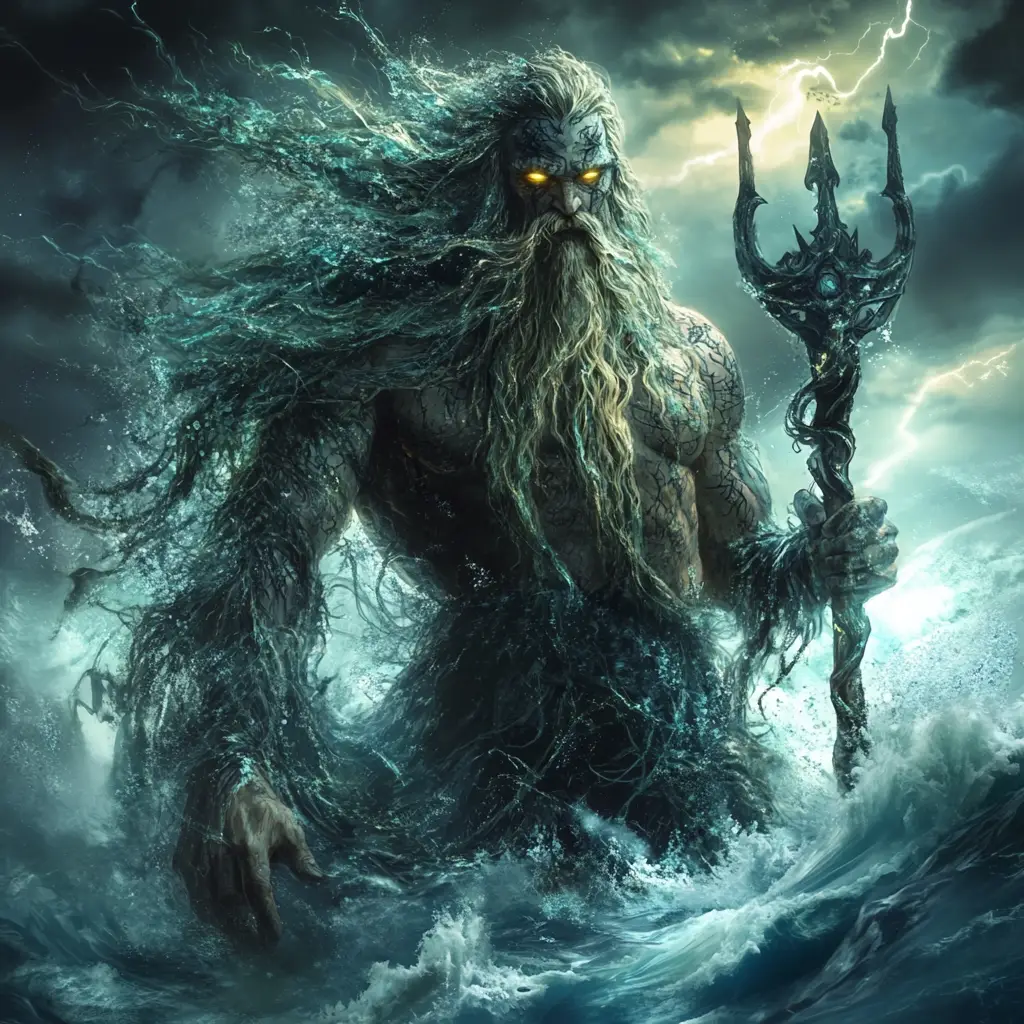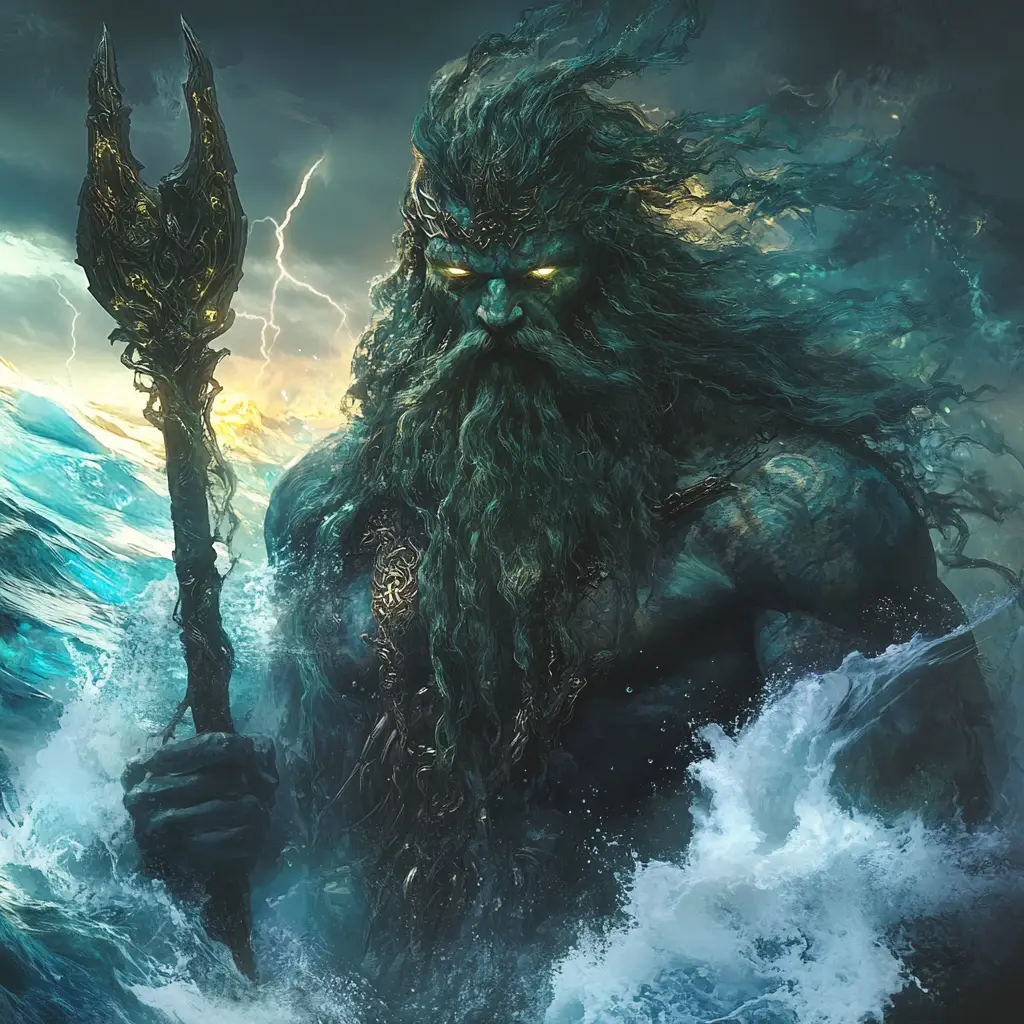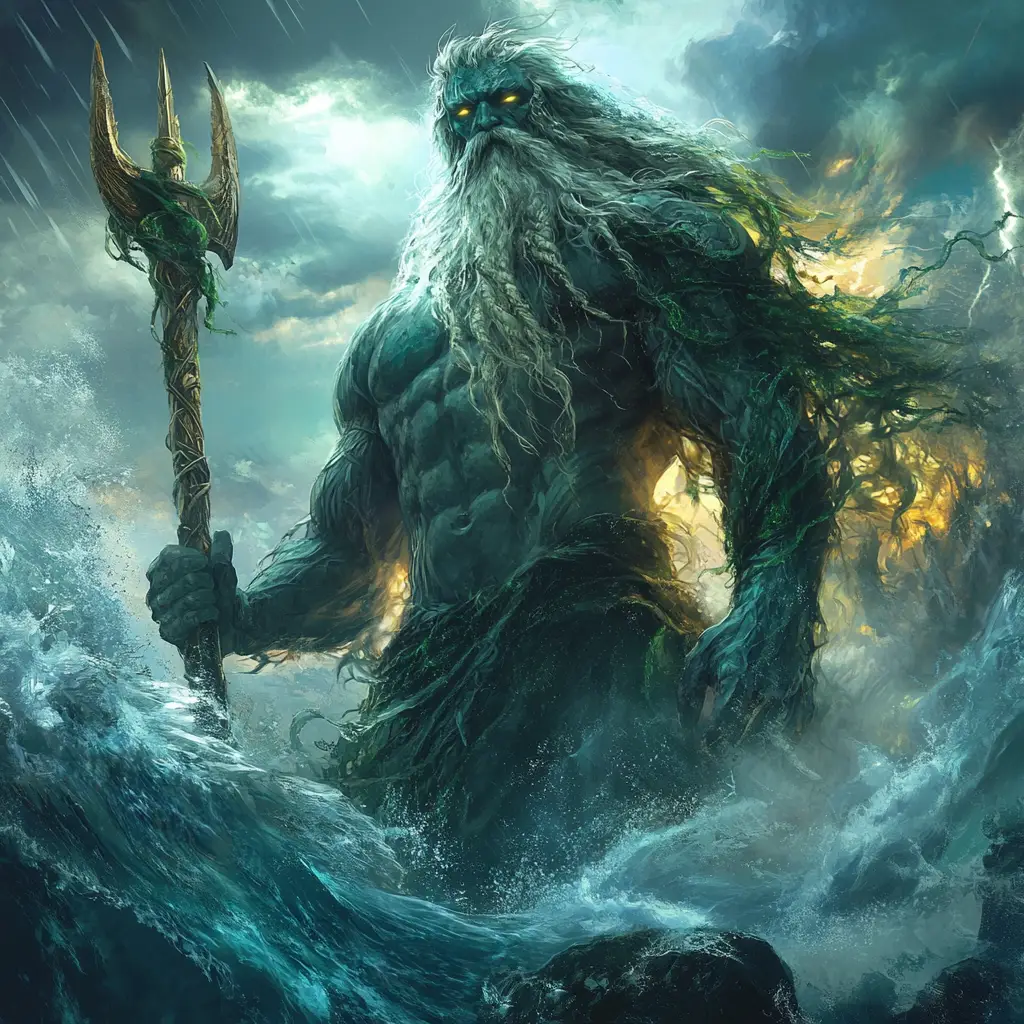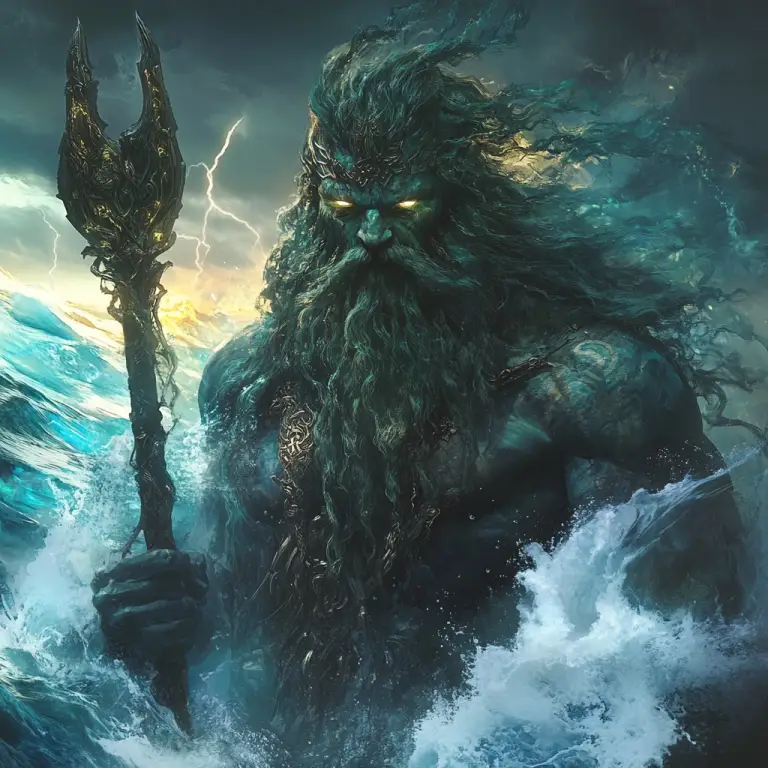Ægir is a fascinating figure in Norse mythology, known as a jötunn (giant) associated with the sea. Though technically a giant, Ægir has a more benevolent and less antagonistic relationship with the gods than many other jötnar. He is a central figure in myths about the ocean and sea storms, as well as in tales involving hospitality and feasting.
God of the Sea:
Ægir is often considered the personification of the ocean. Unlike other sea deities such as Njörðr (a Vanir god of the sea and winds), Ægir represents the more dangerous and wild aspects of the sea, such as storms, shipwrecks, and unpredictable tides.
Despite his connection to the chaotic and often destructive nature of the sea, Ægir is not generally seen as malevolent. He is respected and honoured by both gods and humans for his power over the waters.
Hospitality and Feasting:
Ægir is famous for his grand feasts, to which he often invites the gods of Asgard. His halls are said to be located under the sea, and he is described as an excellent host. The gods enjoy attending Ægir’s feasts, where he serves them ale brewed in a massive cauldron given to him by Thor (after a famous adventure where Thor and Tyr fetched the cauldron from the giant Hymir).
Ægir’s hall is illuminated by gold, and it is said that he has magical powers over brewing, making his ale flow abundantly during these feasts.
Family
Ægir is married to Rán, the goddess of the sea who is associated with drowning and pulling sailors to the depths of the ocean. Together, they have nine daughters, known as the Nine Wave Maidens (or simply, the Waves). Each of their daughters is believed to personify different aspects of ocean waves. These daughters are also linked to mythological events, such as being the mothers of Heimdall, according to some traditions.
Dual Nature
Ægir’s nature is complex. On the one hand, he is a gracious host and friend of the gods, but on the other hand, his wife, Rán, and their daughters represent the more dangerous, perilous aspects of the sea. Rán is notorious for dragging sailors down into the ocean with her net, while Ægir’s daughters, the waves, can be both beautiful and deadly.
This duality of Ægir and his family underscores the unpredictable power of the sea, which can be both bountiful and treacherous.
Ægir’s Relations with the Gods
Ægir has a relatively peaceful and amicable relationship with the Æsir (the gods of Asgard). The gods attend his feasts, and Ægir is often portrayed as an ally rather than an enemy of the gods.
One famous myth involving Ægir is his brewing of ale for the gods, which required the aforementioned cauldron. Thor and Tyr’s quest to obtain this cauldron from the giant Hymir is one of the many adventure-filled stories in Norse mythology.
Mythological Symbolism
Ægir symbolizes both the beauty and terror of the sea, highlighting the respect Norse seafarers had for the ocean. His association with feasting and ale reflects the sea’s bounty and the prosperity that can come from it, while his connection to Rán and his wave daughters represents the darker, more dangerous aspects of maritime life.
His role as a host and brewer also reflects the importance of hospitality in Viking society, where communal feasts and the sharing of drink were central to social and religious life.
Ægir’s Role in Norse Mythology
Ægir’s unique position as both a giant and a respected figure among the gods makes him stand out in Norse mythology. While many jötnar are adversaries of the gods, Ægir is welcomed into their company, largely due to his mastery over the sea, which both mortals and gods rely on. His feasts and brewing skills further highlight his importance as a figure of abundance and celebration.
In essence, Ægir embodies the paradoxical nature of the sea: unpredictable and potentially destructive, yet life-giving and sustaining. He represents the Vikings’ deep connection to the ocean, both as a source of prosperity and a constant, formidable threat.



